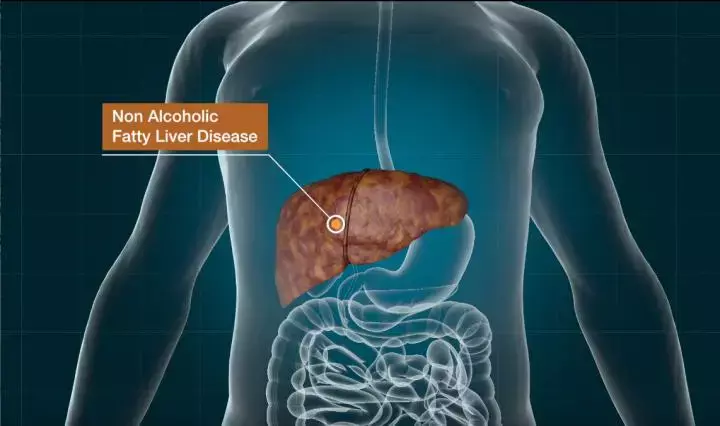- Home
- Medical news & Guidelines
- Anesthesiology
- Cardiology and CTVS
- Critical Care
- Dentistry
- Dermatology
- Diabetes and Endocrinology
- ENT
- Gastroenterology
- Medicine
- Nephrology
- Neurology
- Obstretics-Gynaecology
- Oncology
- Ophthalmology
- Orthopaedics
- Pediatrics-Neonatology
- Psychiatry
- Pulmonology
- Radiology
- Surgery
- Urology
- Laboratory Medicine
- Diet
- Nursing
- Paramedical
- Physiotherapy
- Health news
- Fact Check
- Bone Health Fact Check
- Brain Health Fact Check
- Cancer Related Fact Check
- Child Care Fact Check
- Dental and oral health fact check
- Diabetes and metabolic health fact check
- Diet and Nutrition Fact Check
- Eye and ENT Care Fact Check
- Fitness fact check
- Gut health fact check
- Heart health fact check
- Kidney health fact check
- Medical education fact check
- Men's health fact check
- Respiratory fact check
- Skin and hair care fact check
- Vaccine and Immunization fact check
- Women's health fact check
- AYUSH
- State News
- Andaman and Nicobar Islands
- Andhra Pradesh
- Arunachal Pradesh
- Assam
- Bihar
- Chandigarh
- Chattisgarh
- Dadra and Nagar Haveli
- Daman and Diu
- Delhi
- Goa
- Gujarat
- Haryana
- Himachal Pradesh
- Jammu & Kashmir
- Jharkhand
- Karnataka
- Kerala
- Ladakh
- Lakshadweep
- Madhya Pradesh
- Maharashtra
- Manipur
- Meghalaya
- Mizoram
- Nagaland
- Odisha
- Puducherry
- Punjab
- Rajasthan
- Sikkim
- Tamil Nadu
- Telangana
- Tripura
- Uttar Pradesh
- Uttrakhand
- West Bengal
- Medical Education
- Industry
Nonalcoholic fatty liver disease increases hypertension risk in young women
 NONALCOHOLIC FATTY LIVER DISEASE (NAFLD) OFTEN LEADS TO VARIOUS LIVER COMPLICATIONS, BUT THERE IS A LACK OF DRUGS FOR THE TREATMENT OF NAFLD. view more CREDIT: GWANGJU INSTITUTE OF SCIENCE AND TECHNOLOGY
NONALCOHOLIC FATTY LIVER DISEASE (NAFLD) OFTEN LEADS TO VARIOUS LIVER COMPLICATIONS, BUT THERE IS A LACK OF DRUGS FOR THE TREATMENT OF NAFLD. view more CREDIT: GWANGJU INSTITUTE OF SCIENCE AND TECHNOLOGYNonalcoholic fatty liver disease (NAFLD) is a possible risk factor for developing young-onset hypertension, and it affects women and those with serious hepatic steatosis more than males do, says an article published in Nutrition, Metabolism and Cardiovascular Diseases.
Although young individuals are more likely to have both nonalcoholic fatty liver disease and hypertension, it is unclear if NAFLD impacts the occurrence of early-onset hypertension and whether the link is affected by sex. Because of this, Yejin Kim and colleagues did this study to look at how sex can affect the relationship between NAFLD and incident hypertension in young people (40 years).
In this cohort research, there were 67,553 men and 85,789 women who were under 40 years old and did not have baseline hypertension. By using liver ultrasonography, hepatic steatosis was evaluated and categorized as mild, moderate, or severe. Blood pressure (BP) ≥130/80 mmHg, self-reported history of doctor-diagnosed hypertension, or current use of BP-lowering drugs were all considered to be signs of hypertension. For incident hypertension by NAFLD status (median follow-up, 4.5 years), hazard ratios (HRs; 95% confidence intervals [CIs]) were calculated using Cox proportional hazard models.
The key findings of this study were:
1. In all, 25,891 individuals experienced incident hypertension; the incidence rates were 15.6 for women and 63.5 for males per 103 person-years.
2. For incident hypertension, the multivariable-adjusted HRs (95% CIs) were 1.68 (1.56-1.80), 1.83 (1.60-2.09), and 1.23 (1.17-1.30) for women and men, respectively, comparing no NAFLD (reference) with mild, moderate, or severe NAFLD.
3. Regardless of obesity or central obesity, stronger relationships were continuously seen between NAFLD and incident hypertension in women (all p-values for the sex-based interaction by gender were 0.001).
Risks of young-onset hypertension are increased by non-alcoholic fatty liver disease and young women's weight had no bearing on the link between NAFLD and young-onset hypertension. Younger people's sex-specific multisystem NAFLD effects merit additional focus.
Reference:
Kim, Y., Chang, Y., Ryu, S., Park, S., Cho, Y., Sohn, W., Kang, J., Wild, S. H., & Byrne, C. D. (2023). Nonalcoholic fatty liver disease and risk of incident young-onset hypertension: effect modification by sex. In Nutrition, Metabolism and Cardiovascular Diseases. Elsevier BV. https://doi.org/10.1016/j.numecd.2023.04.021
Neuroscience Masters graduate
Jacinthlyn Sylvia, a Neuroscience Master's graduate from Chennai has worked extensively in deciphering the neurobiology of cognition and motor control in aging. She also has spread-out exposure to Neurosurgery from her Bachelor’s. She is currently involved in active Neuro-Oncology research. She is an upcoming neuroscientist with a fiery passion for writing. Her news cover at Medical Dialogues feature recent discoveries and updates from the healthcare and biomedical research fields. She can be reached at editorial@medicaldialogues.in
Dr Kamal Kant Kohli-MBBS, DTCD- a chest specialist with more than 30 years of practice and a flair for writing clinical articles, Dr Kamal Kant Kohli joined Medical Dialogues as a Chief Editor of Medical News. Besides writing articles, as an editor, he proofreads and verifies all the medical content published on Medical Dialogues including those coming from journals, studies,medical conferences,guidelines etc. Email: drkohli@medicaldialogues.in. Contact no. 011-43720751


